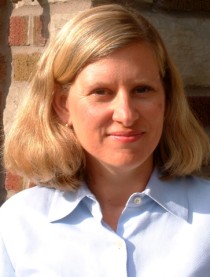Speaker: Mireille E. Broucke
Date: Monday, March 31st, 2014, 2-4pm
Title: Reach Control Problem
Category: Seminar
Mireille E. Broucke obtained a B.S. degree (with highest honors) in Electrical Engineering at the University of Texas at Austin in 1984 and the M.S. and Ph.D. degrees in Electrical Engineering and Computer Sciences at the University of California, Berkeley in 1987 and 2000, respectively. She has six years of industry experience in the area of computer-aided control design at Texas Instruments in Dallas, Texas; General Dynamics in Fort Worth, Texas; Lockheed Corporation in Austin, Texas; Intergraph Corporation in San Ramon, California; and Integrated Systems Inc. in Santa Clara, California. During 1993-1996 she acted as program manager and researcher at Partners for Advanced Transportation and Highways (PATH) in the Institute for Transporation Studies at the University of California, Berkeley. During 1998 and 1999 she was a visiting researcher at the Project on Advanced Research on Architectures and Design of Electronic Systems (PARADES) in Rome, Italy. During 2000-2001 she was a postdoctoral researcher in the Vehicle Dynamics Laboratory in the Department of Mechanical Engineering at University of California, Berkeley. During 2007-2008 she was a visiting professor in the Center for Research on Complex Automated Systems (CASY) at University of Bologna, Italy. Since July 2001 she has been a professor at the University of Toronto, where she is currently an associate professor. Her research interests are in mathematical system theory, hybrid systems, control theory for complex specifications, and geometric control.
Abstract:
We discuss a class of control problems for continuous time dynamical systems featuring synthesis of controllers to meet certain logic specifications. Such problems fall in the area of hybrid systems. Hybrid systems have been studied for some time; unfortunately the area has not delivered all that it promised: a theory of control synthesis has remained elusive. Some work has been done at the high level on synthesis of controllers for logic specifications inspired by discrete event system theory. These approaches do not confront where the true challenge lies: a (hopefully structural) characterization of the intrinsic limits of a continuous time control system to achieve a non-equilibrium specification.
We study affine systems and logic specifications encoded as inequality constraints. Mathematically, the model is an affine system defined on a polytopic state space, and control synthesis typically yields piecewise affine controllers. By studying this special model, synthesis tools have been recoverable. The core synthesis problem has been distilled in the so-called Reach Control Problem (RCP). Roughly speaking, the problem is for an affine system xdot = A x + B u + a defined on a simplex to reach a pre-specified facet (boundary) of the simplex in finite time without first exiting the simplex. The significance of the problem stems from its capturing the essential requirements of logic specifications: state constraints and the notion of trajectories reaching a goal set of states in finite-time.
In the talk I will give highlights of nearly 10 years of research on RCP: solvability by affine feedback, continuous state feedback, time-varying affine feedback, and piecewise affine feedback; an associated Lyapunov theory; a geometric structure theory; and emerging applications.


